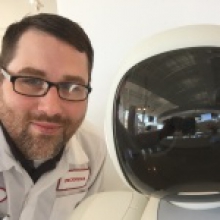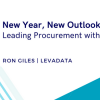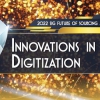In ‘The Fog’ ("Mad Men" Season 5, Episode 3), SCDP’s creative director, Don Draper, delivers a memorable line for today’s procurement managers and professionals. After being endlessly nagged over the waste of office supplies, alcohol and time by the company's CFO, Lane Price, Draper levels this profound declaration:
"You came here because we do this better than you. And part of that is letting our creatives be unproductive until they are."
The environment that existed on Madison Avenue in the 1960s was front and center on the show. Roll in late, leave whenever, engage in office hijinks with your co-workers, have a drink with your boss, work holidays and weekends, entertain clients in the evening, and participate in other antics. They established a working environment that—while not necessarily the norm for other business functions—was conducive to the creative process, with Draper clearly defending that process to someone who did not understand it at all. This does not mean that we should start stocking bourbon in our offices, disappearing for hour-long naps, busting through a pack of Lucky Strikes or punching out after a few hours of work, but there are a few things we can apply to business of today.
First, we have to recognize that to be better than our competitors, creating an optimal work environment for ideas to mature is critical. If we look at the history of workspaces, 1980s offices gave way to cubicles in the 1990s. At the turn of the century, collaborative workspaces were developed that have become all the rage today. However, something interesting has happened in the past few years as these “open office” environments have become more mainstream. Employees at Apple and Facebook have revolted and even quit in large numbers after being subject to such ecosystems. The mistake that these two companies made are common to many other organizations when a single setting work environment is heavily promoted. The reality is that today’s office really does not have walls as the lines of work and home have become increasingly blurred.
So what is next? With us being available just about anywhere at any time, companies who adopt an “all of the above” approach to work environments will truly get the most out of their staff. There are times when it is essential to be in the office so we can collaborate with our teams, management and stakeholders. Need to put together that presentation or get caught up on emails? Working from home can provide that desperately needed focus time. If you are a manager and work with your associates on career planning, development, etc., show them you are truly vested in their success by holding those discussions at a local coffee shop with just a few documents in front of you and no technology. Ready to negotiate that important deal or build stronger supplier relationships? Do it over a lunch or dinner. All of these environments bring greater depth to our procurement roles and align with the mobile lifestyles that we all live today. Additionally, everyone functions optimally in different environments so creating this flexibility not only allows the creative process to mature, but it also fosters greater trust and loyalty between employers and employees, companies and suppliers.
Secondly, to harness the ingenuity of our employees, we have to let them develop it in the construct(s) that best fits them on an individual basis. Contrary to popular thought, detaching from work in an “unproductive” setting can actually produce the opposite results. In his book ‘Leonardo da Vinci’, author Walter Isaacson contests that the secret to da Vinci’s genius rested in his ability to walk away from a painting and become immersed in a completely different subject matter such as the sciences, engineering, or with a simple body of water. While seemingly illogical, the latter allowed him to study the effects lighting on objects in nature and apply those observations to facial shadows on the ‘Mona Lisa’ with tremendous detail and depth. Da Vinci was both intensely focused and adrift at the same time but is widely regarded as one of the world’s greatest minds. His ability to be unproductive on a frequent basis obviously paid enormous dividends.
Don Draper won the philosophical standoff with his CFO regarding a perceived waste of resources not only because he crystalized the situation so well but also because he could back-up that position with the work produced by his team. The same challenge exists for us today. If we are not getting the output desired, perhaps we just have not fostered the right environment for creativity to flourish. Maybe we have not recognized the true value of unproductivity.







